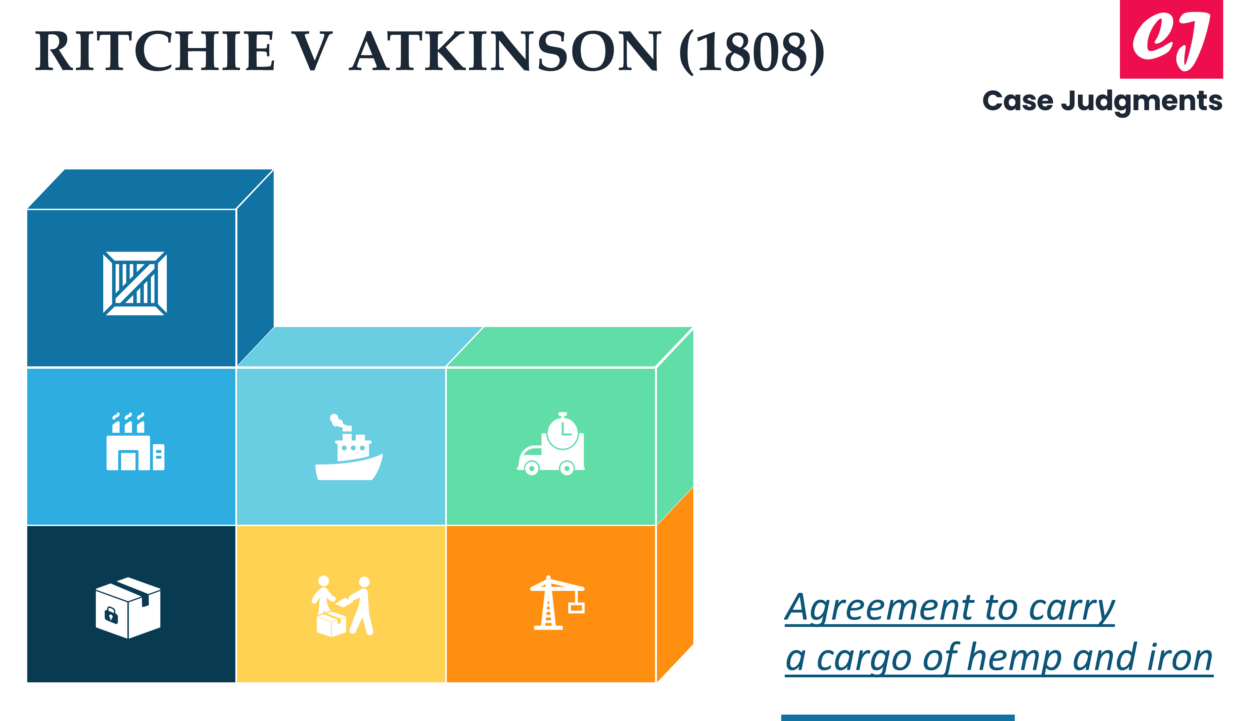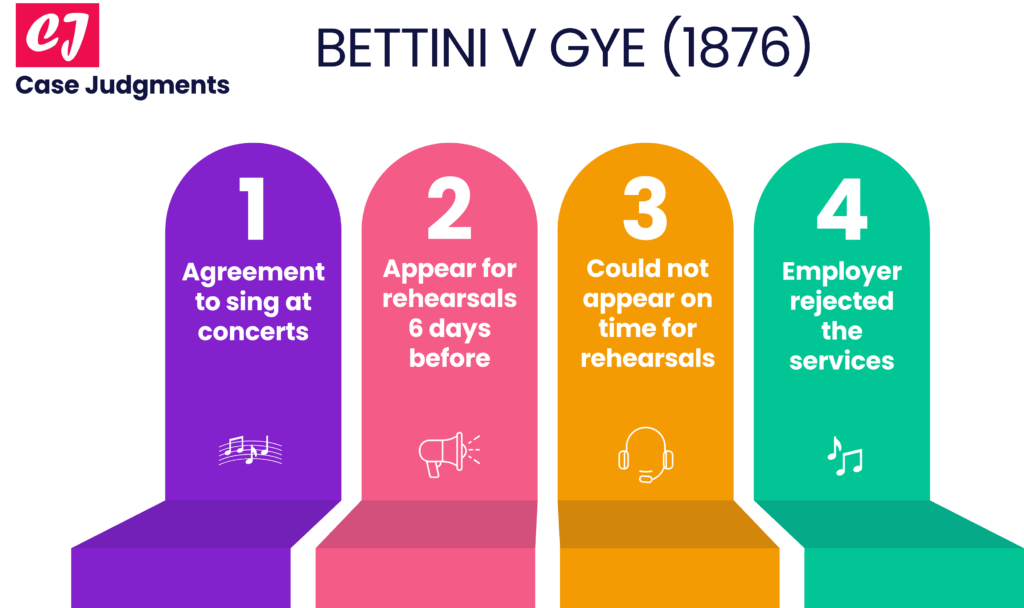
Ritchie v Atkinson (1808): A Quick Summary
In this blog post, we are covering a summary of the case of Ritchie v Atkinson (1808). The case relates to a contract dispute involving the transportation of a cargo consisting of hemp and iron. Given below are the case details:
| Case name & citation: Ritchie v Atkinson (1808) 10 East 295 |
| Jurisdiction: England and Wales |
| Year of the case: 1808 |
| Area of law: Breach of contract; discharge by performance |
Contractual agreement (Ritchie v Atkinson)
The claimant (Ritchie) had entered into a contract with the defendant (Atkinson) to transport a specific quantity of hemp and iron. The agreed-upon prices were £5 per ton for hemp and 5 shillings per ton for iron.
Non-performance
The claimant only shipped a portion of the agreed-upon quantity of cargo, failing to fully perform their obligations under the contract.
Defendant’s argument
The defendant contended that since the claimant had not fully performed the contract, no payment was due to them.
Court’s judgment in Ritchie v Atkinson
The court held that the contract could be divided into separate parts based on the agreed prices per ton for hemp and iron (i.e., because the prices were set per ton). Therefore, the claimant was entitled to payment for the quantity of cargo they did transport. However, the defendant was also entitled to claim damages for the claimant’s failure to perform in relation to the quantity of cargo that was not transported.
The reasoning behind the decision
The given case illustrates the concept of divisibility of contracts and its implications for payment or compensation.
An entire contract is one where the obligations of the parties are interdependent and cannot be divided into separate parts. In such cases, complete performance of the entire contract is usually necessary for discharge.
However, if a contract is divisible, meaning it can be separated into distinct and independent parts, then the sole performance of those parts may be sufficient to trigger payment or compensation for the completed segments. In cases where a contract can be divided, such as when a sum is agreed upon for each week or hour of work, the courts may award payment or compensation for the portions of the contract that have been successfully completed.
Final words
The given case shows that, in essence, the principle of divisibility recognizes that certain contracts can be fragmented into separate, measurable units of performance, allowing for partial compensation or payment when those segments are fulfilled. This is in contrast to entire contracts, which generally require complete performance of all obligations before the contract is considered discharged.
In Ritchie v Atkinson, despite the claimant only carrying a part of the cargo, the court allowed payment for the transported quantity while also permitting the defendant to claim damages for the quantity not shipped.
List of references:
- https://www.e-lawresources.co.uk/Ritchie-v-Atkinson.php
- https://www.lawteacher.net/free-law-essays/contract-law/case-study-of-breach-of-contract-contract-law-essay.php
You might also like:
More from contract law:

